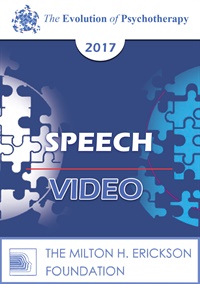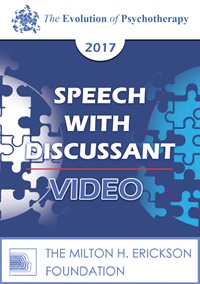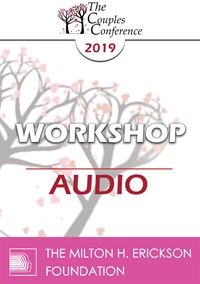
Credit available - Click Here for more information
- Average Rating:
- Not yet rated
- Topic Areas:
- Workshops | Psychobiological Approach to Couples Therapy (PACT) | Continuing Education | Couples Therapy
- Bundle(s):
- CC19 Main Conference Audio Bundle | CC19 Individual Selections
- Categories:
- Couples Conference | Couples Conference 2019 | Online Continuing Education
- Faculty:
- Stan Tatkin, PsyD, MFT
- Duration:
- 2:03:44
- Format:
- Audio Only
- Original Program Date:
- Apr 13, 2019
- Short Description:
- PACT is a non-linear, poly-theoretical approach that fuse theories of attachment, developmental neuroscience, and arousal regulation. PACT is quickly gaining a reputation for effectively treating couples typically thought of as challenging.
- Price:
- $15.00 - Base Price
Tags: Online CE Couples Therapy PACT
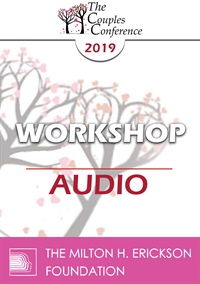
Credit available - Click Here for more information
- Average Rating:
- Not yet rated
- Topic Areas:
- Workshops | Psychobiological Approach to Couples Therapy (PACT) | Personality Disorders | Continuing Education | Couples Therapy | Attachment
- Bundle(s):
- CC19 Main Conference Audio Bundle | CC19 Individual Selections
- Categories:
- Couples Conference | Couples Conference 2019 | Online Continuing Education
- Faculty:
- Stan Tatkin, PsyD, MFT
- Duration:
- 3:06:45
- Format:
- Audio Only
- Original Program Date:
- Apr 14, 2019
- Short Description:
- This workshop will take the first two introductory seminars and push it working with personality disordered partners. We will move from an attachment model to that of an American object relations/ego psychology to understand the structural and functional differences between insecure attachment and personality disordered individuals and how to work with them in couple therapy.
- Price:
- $15.00 - Base Price
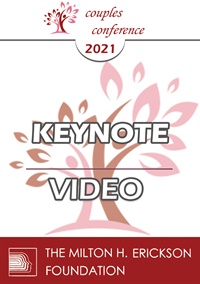
Credit available - Click Here for more information
- Average Rating:
- Not yet rated
- Topic Areas:
- Couples Therapy | Love | Continuing Education | Goals of the Therapist | Keynotes | Relationships
- Categories:
- Couples Conference | Couples Conference 2021 | Online Continuing Education
- Faculty:
- Stan Tatkin, PsyD, MFT
- Course Levels:
- Master Degree or Higher in Health-Related Field
- Duration:
- 1 Hour 2 Minutes
- Format:
- Audio and Video
- Original Program Date:
- Jun 05, 2021
- Short Description:
- As with any approach, couple therapy must have a clear vision toward which the couple can navigate. We may call this the therapeutic goal or therapeutic narrative. The clarity by which the therapist holds this vision and expects the couple to meet this goal largely determines therapeutic success. One such goal is the partner co-creation of a relationship ethos or ethical system based on shared purpose, shared vision, and shared principles of governance. A principle-based relationship, while not based on feelings, may prove vital to the prevention of common relational threat while essential to the fostering of mutually earned love, respect, and admiration.
- Price:
- $29.00 - Base Price
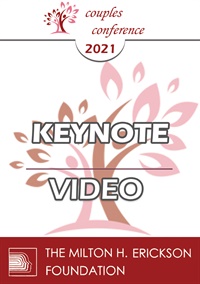
Credit available - Click Here for more information
- Average Rating:
- Not yet rated
- Topic Areas:
- Couples Therapy | Sex and Sexuality | Continuing Education | LGBTQ | Gender | Keynotes | Relationships
- Categories:
- Couples Conference | Couples Conference 2021 | Online Continuing Education
- Faculty:
- Joseph Winn, MSW, LICSW, CST-S
- Course Levels:
- Master Degree or Higher in Health-Related Field
- Duration:
- 1 Hour 2 Minutes
- Format:
- Audio and Video
- Original Program Date:
- Jun 06, 2021
- Short Description:
- This keynote will highlight core themes that are imperative for therapists to consider before working with relational systems that exist beyond the purview of heteronormativity. Specific topics will include becoming aware of ones sexological world views, understanding and working with sexual and relational health, and exploring what variant sexual, erotic and relational systems may offer heteronormative and monogamous couples in terms of increasing vulnerability, differentiation, and deepening relational attunement.
- Price:
- $29.00 - Base Price
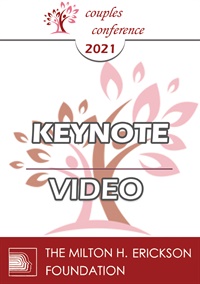
Credit available - Click Here for more information
- Average Rating:
- Not yet rated
- Topic Areas:
- Couples Therapy | LGBTQ | Continuing Education | Keynotes | Gender
- Categories:
- Couples Conference | Couples Conference 2021 | Online Continuing Education
- Faculty:
- Shawn Giammattei, PhD
- Course Levels:
- Master Degree or Higher in Health-Related Field
- Duration:
- 1 Hour 9 Minutes
- Format:
- Audio and Video
- Original Program Date:
- Jun 06, 2021
- Short Description:
- Dr. Giammattei will present the underlying framework that therapists who work with transgender or gender expansive (TGE) couples need to understand in order to provide gender affirming treatment. He will share ways to explore your own hetero/cis-normative beliefs around coupling and how these influence the models you choose, the questions you ask, and the interventions you use. While TGE couples experience many of the same issues as other couples, we will explore the minority stress and unique stressors that impact these issues in profound ways.
- Price:
- $29.00 - Base Price

Credit available - Click Here for more information
- Average Rating:
- Not yet rated
- Topic Areas:
- Couples Therapy | Relationships | Anxiety | Continuing Education | Mindfulness | Topical Panels | Treatment Planning
- Categories:
- Couples Conference | Couples Conference 2021 | Online Continuing Education
- Faculty:
- Helen LaKelly Hunt, PhD | Caroline S. Welch | Stan Tatkin, PsyD, MFT | Shawn Giammattei, PhD
- Course Levels:
- Master Degree or Higher in Health-Related Field
- Duration:
- 58 Minutes
- Format:
- Audio and Video
- Original Program Date:
- Jun 06, 2021
- Short Description:
- Acting out is a response to anxiety, and such behavior can be targeted to a partner. Methods of assessing and addressing acting out will be covered.
- Price:
- $29.00 - Base Price
Credit available - Click Here for more information
- Average Rating:
- Not yet rated
- Topic Areas:
- Speeches | Couples Therapy | Marriage | Continuing Education | Sex and Sexuality | Intimacy | Relationships
- Bundle(s):
- EP17 Audio Streaming Build a Bundle
- Categories:
- Evolution of Psychotherapy | Evolution of Psychotherapy 2017 | Online Continuing Education
- Faculty:
- Michele Weiner-Davis, LCSW
- Duration:
- 46:30
- Format:
- Audio Only
- Original Program Date:
- Dec 16, 2017
- Short Description:
- One out of every three couples struggles with mismatched sexual desire---a formula for marital disaster. When one spouse is sexually dissatisfied and the other is oblivious, unconcerned, or uncaring, sex isn't the only casualty; a sense of emotional connection can also disappear. Helping couples bridge the desire gap can be challenging when one spouse appears unmotivated or lacks empathy. This speech presents a collaborative model for partners to work together to turn around the decline in their sex lives and reignite their emotional connection.
- Price:
- $15.00 - Base Price
Credit available - Click Here for more information
- Average Rating:
- Not yet rated
- Topic Areas:
- Speeches | Memory | Continuing Education | Psychology | Psychotherapy
- Bundle(s):
- EP17 Video Stream Build a Bundle
- Categories:
- Evolution of Psychotherapy | Evolution of Psychotherapy 2017 | Online Continuing Education
- Faculty:
- Elizabeth Loftus, PhD
- Course Levels:
- Master Degree or Higher in Health-Related Field
- Duration:
- 56:41
- Format:
- Audio and Video
- Original Program Date:
- Dec 16, 2017
- Short Description:
- For several decades, I have been manufacturing memories in unsuspecting minds. People can be led to believe that they did things that would have been rather implausible. They can be led to falsely believe that they had experiences that would have been emotional or traumatic had they actually happened. False memories, like true ones, also have consequences for people, affecting later thoughts, intentions, and behaviors. Can we tell true memories from false ones? In several studies, I created false memories in the minds of people, and then compared them to true memories. Once planted, the false memories look very much like true memories—in terms of behavioral characteristics, emotionality and neural signatures. If false memories can be so readily planted in the mind, do we need to think about “regulating” this mind technology? And what do these pseudo memories say about the nature of memory itself?
- Price:
-
Sale is $29.00
price reduced from Base Price - $59.00
Credit available - Click Here for more information
- Average Rating:
- Not yet rated
- Topic Areas:
- Speeches with Discussants | Trauma | Somatic Experiences | Memory | Continuing Education | Psychotherapy
- Bundle(s):
- Learning Track - EP17 Trauma Stream | EP17 Video Stream Build a Bundle
- Categories:
- Evolution of Psychotherapy | Evolution of Psychotherapy 2017 | Evolution of Psychotherapy Trauma Learning Track | Online Continuing Education
- Faculty:
- Peter Levine, PhD | Bessel van der Kolk, MD
- Course Levels:
- Master Degree or Higher in Health-Related Field
- Duration:
- 1:23:22
- Format:
- Audio and Video
- Original Program Date:
- Dec 16, 2017
- Short Description:
- There is tremendous confusion in work with traumatic memories, often leaving clients and their therapists confused and insecure. In this lecture we will discuss the different types of memory (both explicit/conscious & implicit/unconscious) in resolving traumatic reactions, while avoiding the creation of "false memories."
- Price:
-
Sale is $29.00
price reduced from Base Price - $59.00
Please wait ...



